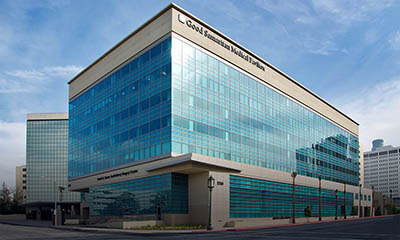What Are Nasal Polyps?
Nasal polyps are soft, painless, and non-cancerous growths that arise from the lining of the nasal passages or sinuses. They can vary in size and shape and may appear as small, teardrop-shaped growths or as larger masses that resemble grapes.
Causes of Nasal Polyps
The exact cause of nasal polyps is not always clear, but they are often linked to chronic inflammation. Managing the underlying inflammation is critical. Conditions that are commonly associated with nasal polyps include:
- Chronic Sinusitis: Long-term inflammation of the sinuses can lead to the development of nasal polyps, especially when symptoms linger for months.
- Allergic Rhinitis: Allergic reactions can contribute to chronic inflammation and polyps.
- Asthma: People with asthma are at a higher risk of developing nasal polyps.
- Cystic Fibrosis: This genetic disorder affects the lungs and can also cause nasal polyps, particularly in children.
Symptoms of Nasal Polyps
The symptoms of nasal polyps can vary depending on their size and location, but common signs include:
- Nasal Congestion: Difficulty breathing through the nose due to blockage.
- Runny Nose: Persistent mucus discharge.
- Loss of Smell: Reduced ability to smell or taste.
- Facial Pain or Pressure: Discomfort or pressure in the face or forehead.
- Snoring: Increased snoring due to nasal obstruction.
- Postnasal Drip: Mucus dripping down the back of the throat.
Diagnosis and Treatment
If you suspect you have nasal polyps, it’s important to consult with an ENT specialist for an accurate diagnosis. Your doctor may perform a physical examination and use a nasal endoscope to inspect the nasal passages and sinuses.
Treatment Options for Nasal Polyps:
- Medications: Corticosteroid nasal sprays are commonly used to reduce inflammation and shrink polyps. Oral corticosteroids may be prescribed for more severe cases.
- Allergy Management: Managing allergies with antihistamines or allergy shots can help reduce inflammation and prevent polyps from recurring.
- Surgery: If medications are not effective, surgical removal of the polyps may be necessary. This is typically done endoscopically, which means it is minimally invasive with a quicker recovery time.
- Lifestyle Adjustments: Avoiding irritants such as smoke, managing asthma and allergies, and maintaining good nasal hygiene can help manage and prevent the recurrence of nasal polyps.
When to See a Doctor
If you experience symptoms of nasal polyps, especially if they persist despite home treatment, don’t hesitate to reach out to our clinic for personalized care and support. Our Los Angeles ENT team can discuss long-term polyp prevention, imaging, and advanced options like balloon sinuplasty.

























